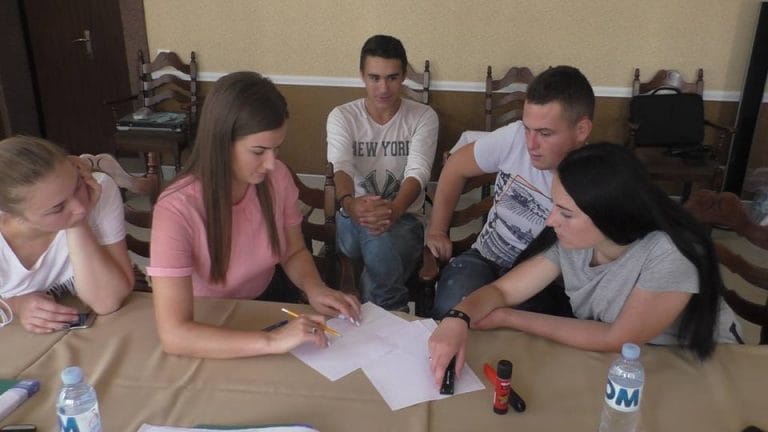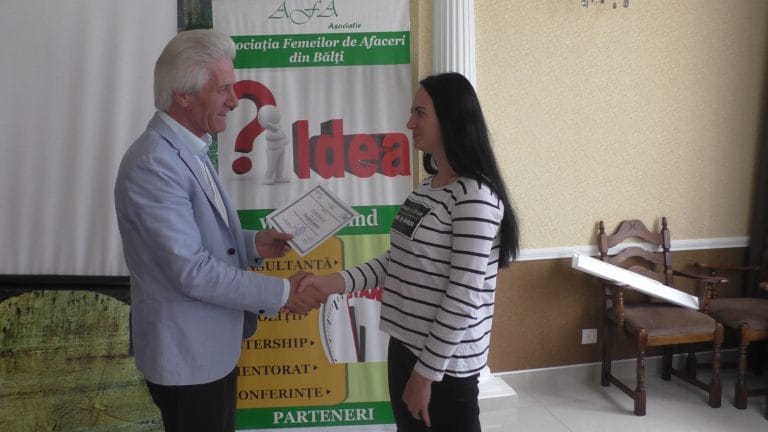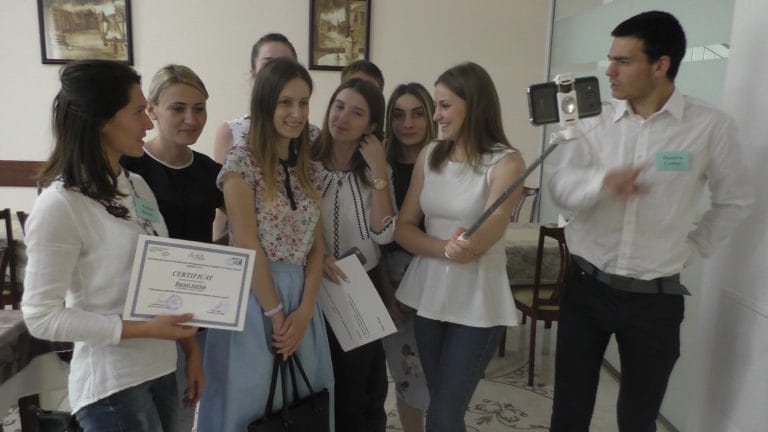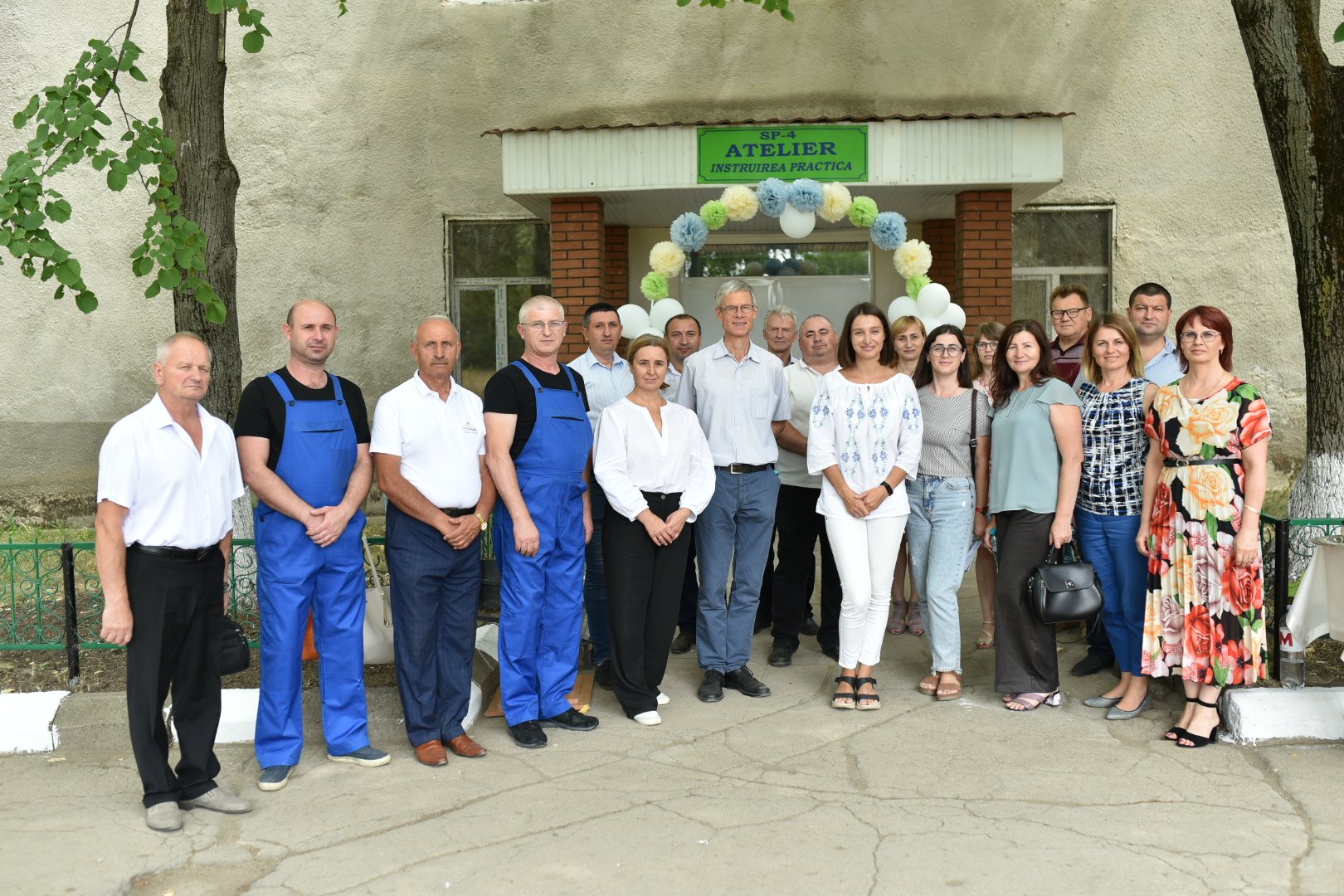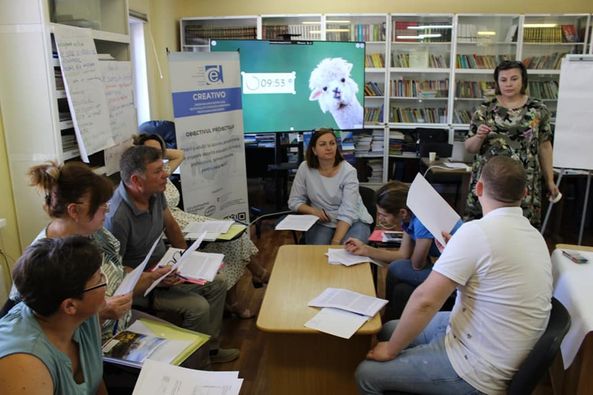Between July 3-15, 2017, in Chisinau and Balti, two entrepreneurial courses were held for the graduates of the Technical Vocational Education Institutions. The purpose of these courses was to develop entrepreneurial skills for starting their own business.
The event was attended by 32 young people who, within the framework of their activities, reviewed their business plans and identified the issues to be improved.
The training program focused on the in-depth assessment of business ideas, using the Lean Canvas business model and the business-economic analysis of the business.
Applying the Lean Canvas model has given participants the opportunity to test business ideas effectively in terms of both the problem solved by the product / service offered by the entrepreneur and the resources used for that purpose at the start of the business. Along with Elena Bordianu and Veronica Garbuz, the beneficiaries have step-by-step evaluating their own business ideas, identifying the competitive advantage of potential competitors, market segment, distribution channels and economic and financial indicators of the business. The participants filled out the 9 basic quadrants that make up a “cloth” of the business idea, in order to minimize the risks and costs associated with the start-up phase.
If after testing the product / service offered or the accumulation of new information, he/she needs to introduce essential changes to the idea of a business, he/she can do it in record time on the sheet by adjusting the Lean Canvas compartments. Once the entire canvas is completed, young people can easily begin writing the business plan because the information is summed up and key business issues are already being analysed, with minimal risk and investment. Ion Maican believes that “Lean Canvas is a very useful tool for start-ups because it outlines 9 of the most important aspects of a business.”
The economic and financial analysis of the business has proved to be very useful to young people, as they have faced the most difficulties in drawing up their business plans.
Guided by Mr. Tudor Lupascu, the young persons learned to “communicate” with the balance sheet. Through practical exercises, the beneficiaries of the training program learned to assign to each part of the balance sheet elements of the patrimony that they were planning to use to initiate the business, identify the costs of the product or service, make realistic forecasts of expenses and revenues in the short and medium term, calculate the break-even point of their own business, etc. Case studies helped young people understand the importance of proper business planning. On this subject Cristina Coca mentioned that “in this module I realized what I need to change in my business plan, I decided to simplify it, I will change the number of employees …”
Most participants appreciated financial planning at their fair value, and at the end of the course they concluded that it is not as complicated as it may seem at first glance, can be understood and easily applied to the finalization of the business plan if it is plainly explained, based on different examples.
In this chapter, Carolina Lungu stressed that “initially, in the business plan, the costs were very high, now I know I have to review them, so the financial plan has to be slightly modified”, and Elena Rotaru said that “… I made clarity in everything related to figures, accounting, management, bookkeeping, calculation of performance indicators, identification of business financing resources … ”
Referring to the expectations of the young people coming to the training program, many of them mentioned that the support they received had far exceeded the expectations they had.
Here are some impressions of the participants:
Dmitrii Croitor
“I am very pleased that Mr. Tudor Lupaşcu explained in detail the production cycle, namely
the organization of production, on which the success of the business depends. I understand that risks need to be assessed thoroughly when we draw up the business plan. “
Donea Constantin
“… here I started to understand the essence of the balance sheet … the accumulated knowledge inspires me more confidence in my own forces and give me the courage to participate in the grant program.”
Mihaela Botezatu
“The training program is very beneficial for future entrepreneurs who want to launch their business and thrive in the chosen field. Hours of training helped me to have another vision of my business. “
Popescu Alexandru
“The course is different from the one in the school, the Basics of Entrepreneurship discipline is an initiation of knowledge in the development of a business. This course has shown us how we can use the notions in real life when we really want to launch a business. “
Morari Cristina
“The training hours, including the more difficult moments in assimilation of information, motivated me even further to move forward, made ambitious to seek resources to make my business plan a successful business.”
After graduating the course, young people can still benefit from individual counselling hours offered by the CEDA and AFA Balti teams to help them complete the business plan and subsequently apply for the grant program available to young people under the MEEETA project financed by LED.
In this regard, we encourage young people to send the application form to the grant program and wish them success in starting their own businesses.
The courses were organized by the Center for Entrepreneurial Education and Business Support, in partnership with the Association of Business Women from Balti in the framework of the project “Training Activity in the Field of Entrepreneurship and Employment” (MEEETA IV), implemented with the financial support of the Liechtenstein Development Services Foundation (LED).



